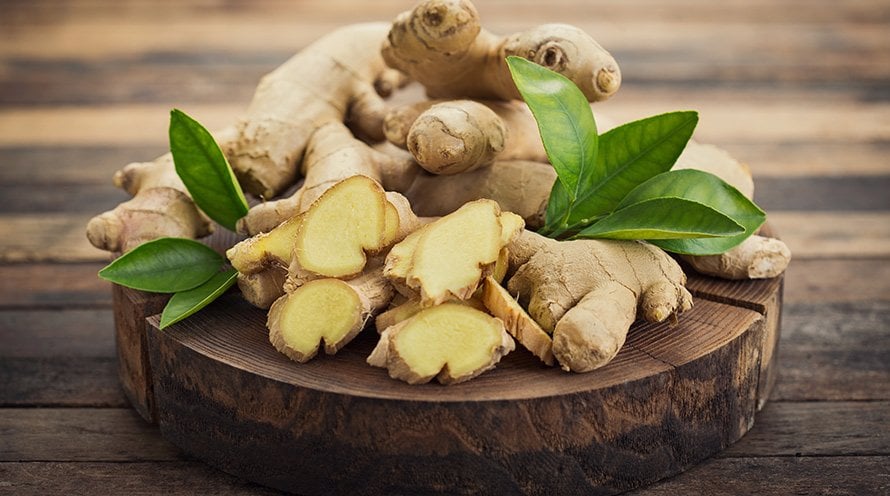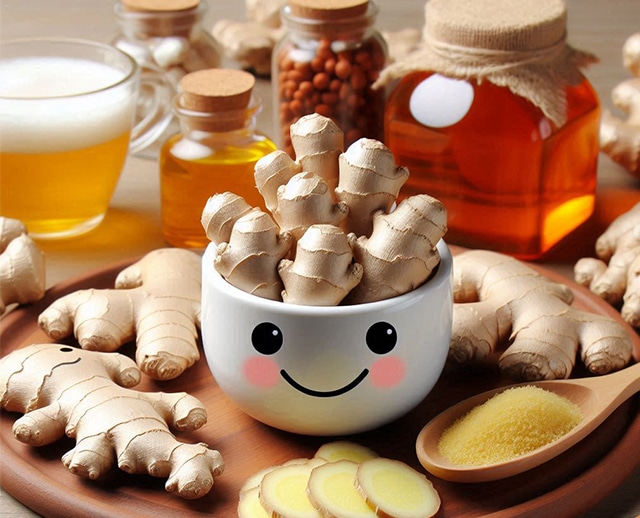Mental Health & Mindfulness
3 gingers, Anti-Inflammatory Foods, antioxidant foods, cognitive health, ginger benefits, ginger for anxiety, ginger for depression, Ginger Mental Health, ginger mental health review, ginger mental health reviews, mental health support, Mental Wellness, natural remedies, natural stress relief
0 Comments
How Ginger Can Support Mental Health Naturally
Introduction: Ginger’s Role in Mental Health
Ginger, widely known for its medicinal properties, has recently gained recognition for its role in mental health support. The combination of ginger’s anti-inflammatory, antioxidant, and neuroprotective properties can make a significant difference in mental health. This article explores the connection between ginger and mental health, providing insights into how this natural remedy can improve your emotional well-being.
The Science Behind Ginger and Mental Health

- Antioxidant Properties Oxidative stress is a key factor in the development of mental health disorders such as depression and anxiety. The antioxidants in ginger can help neutralize harmful free radicals, reducing oxidative damage in the brain. Studies suggest that increased antioxidant intake can improve overall brain function and reduce symptoms of depression and anxiety.
- Anti-Inflammatory Effects Chronic inflammation has been linked to various mental health conditions, including depression, anxiety, and cognitive decline. Ginger’s potent anti-inflammatory properties can reduce inflammation in the body and brain, promoting a healthier environment for cognitive function. By lowering inflammation, ginger may help alleviate some symptoms of mental health disorders.
- Neuroprotective Benefits Emerging research suggests that ginger can protect the brain from neurodegenerative diseases like Alzheimer’s and Parkinson’s. Its neuroprotective properties may also help prevent or slow cognitive decline, which is often associated with aging and mental health deterioration.
Ginger’s Impact on Mental Health Disorders
- Ginger and Depression Depression is one of the most common mental health conditions worldwide. It affects mood, energy levels, and overall quality of life. Several studies have explored the potential benefits of ginger in combating depression due to its anti-inflammatory and antioxidant properties. Inflammation and oxidative stress are known contributors to the development of depression, and ginger’s ability to reduce these factors may help relieve symptoms. In some cases, ginger has even been compared to certain antidepressant medications, though more research is needed to confirm these effects in humans.
Additionally, ginger may help boost serotonin levels, the “feel-good” chemical in the brain. Low levels of serotonin are associated with depression, and increasing serotonin can improve mood and reduce depressive symptoms.
- Ginger and Anxiety Anxiety disorders, characterized by excessive worry, fear, and tension, affect millions of people worldwide. The stress and inflammation that contribute to anxiety can be countered by ginger’s anti-inflammatory and antioxidant effects. A study conducted on animal models showed that ginger extract reduced anxiety-like behavior, suggesting its potential as a natural remedy for anxiety. However, human studies are still needed to fully understand the extent of ginger’s effects on anxiety.
- Ginger and Cognitive Function Cognitive decline, which is often seen in neurodegenerative disorders like Alzheimer’s, can be influenced by both inflammation and oxidative stress. Ginger’s neuroprotective properties may help support cognitive health and prevent or slow age-related cognitive decline. Some studies suggest that ginger supplementation can enhance working memory and attention in middle-aged women, pointing to its potential as a cognitive enhancer.
How Ginger Works in the Brain
- Boosting Serotonin and Dopamine Ginger may have an impact on neurotransmitter levels, including serotonin and dopamine. These chemicals play a vital role in mood regulation, and imbalances in serotonin and dopamine are often associated with mental health disorders like depression and anxiety. By helping to balance these neurotransmitters, ginger may contribute to better emotional well-being.
- Reducing Cortisol Levels Cortisol is the body’s primary stress hormone, and high levels of cortisol over long periods can lead to mental health issues like anxiety and depression. Ginger has been shown to reduce cortisol levels, potentially decreasing stress and promoting relaxation.
- Enhancing Brain-Derived Neurotrophic Factor (BDNF) BDNF is a protein that plays a critical role in brain health by promoting the growth and survival of neurons. Low levels of BDNF have been linked to depression and other mental health disorders. Some research suggests that ginger can increase BDNF levels, supporting brain function and resilience to mental health challenges.
How to Incorporate Ginger Into Your Routine
Adding ginger to your diet can be simple and delicious. Here are some ways to integrate this powerful spice into your daily life to support mental health:
- Ginger Tea One of the easiest and most soothing ways to consume ginger is in tea form. Simply steep fresh ginger slices in hot water for 10-15 minutes. Add honey and lemon for added flavor and health benefits. Drinking ginger tea regularly can help reduce stress and promote mental clarity.
- Ginger Smoothies Incorporate fresh ginger into your morning smoothies. Its spicy kick pairs well with fruits like pineapple, mango, and banana. Blending ginger into your smoothies provides a refreshing way to boost your mental health with its anti-inflammatory and antioxidant properties.
- Ginger in Cooking Ginger is a versatile ingredient that can be added to many savory and sweet dishes. Use it in stir-fries, soups, and curries, or sprinkle powdered ginger into baked goods. By incorporating ginger into your meals, you can enjoy both its flavor and its mental health benefits.
- Ginger Supplements For those who may not enjoy the taste of ginger, supplements are available in capsule or powder form. Consult with a healthcare provider before starting any new supplement, especially if you are taking medication or have existing health conditions.
Recipes to Boost Mental Health with Ginger
- Ginger and Turmeric Tea
- 1 cup hot water
- 1 tsp fresh ginger, grated
- 1/2 tsp turmeric powder
- Honey and lemon to taste
Combine all ingredients and steep for 10 minutes. This tea combines the mental health benefits of both ginger and turmeric, creating a powerful anti-inflammatory drink that can reduce stress and improve cognitive function.
- Ginger-Infused Smoothie
- 1 banana
- 1/2 cup spinach
- 1 tsp grated ginger
- 1/2 cup almond milk
- 1 tbsp chia seeds
Blend all ingredients until smooth. This smoothie is packed with nutrients that support brain health, and the ginger adds a refreshing boost for mental clarity.
- Ginger and Lemon Detox Water
- 1 liter of water
- 1 tbsp fresh ginger, sliced
- 1 lemon, sliced
Let the ginger and lemon infuse in water for a few hours. This detox water helps hydrate the body and brain while reducing inflammation, making it a simple yet effective mental health booster.
Conclusion: Ginger as a Natural Ally for Mental Health
While mental health conditions can be complex and require a multifaceted approach, ginger may serve as a valuable natural remedy to support emotional and cognitive well-being. Its anti-inflammatory, antioxidant, and neuroprotective properties offer a range of mental health benefits, from reducing anxiety and depression to improving cognitive function.
Incorporating ginger into your diet through teas, smoothies, cooking, or supplements is a simple way to harness its mental health-boosting properties. As always, it’s important to consult with a healthcare professional before making significant changes to your health routine, especially if you are managing a mental health condition.
By embracing natural remedies like ginger, we can take proactive steps toward improving both physical and mental health.
Share this content:













Post Comment